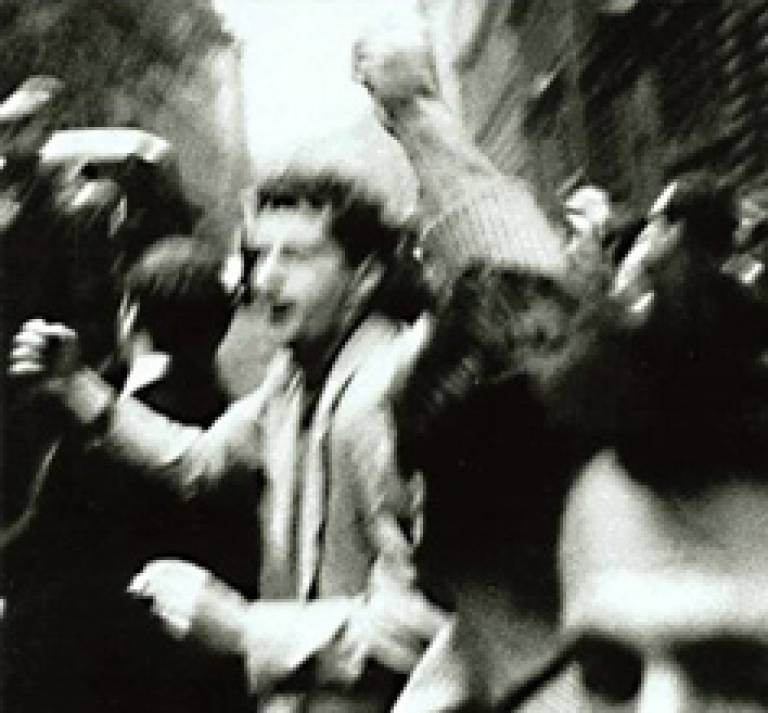Concepts of Passions and Politics
03 June 2016, 12:00 am

Event Information
Open to
- All
3 June 2016
Looking at specific situations of political action, this international workshop - part of our Passionate Politics projects - will explore how the passions are linked to politics in theories, languages, symbolic systems, and vocabularies.
|
When: Where: |
Between 2014 and 2017, an interdisciplinary research group at UCL is exploring the role of the passions in shaping political action, identities, movements and ideologies. Through a series of reading groups, conferences and an online archive, we seek to understand the role of emotions at key historical moments of social change - be this grief as a response to social upheaval; empathy and the creation of political and social solidarity; or the roots of political dissent in anger.
In 2015, our first workshop reviewed and compared how different academic disciplines in the social sciences and humanities engage with political passion. In this, our second workshop, we aim to explore how the passions are linked to politics in theories, languages, symbolic systems, and vocabularies. Until recently, where the passions received attention from political theorists and philosophers at all, it was in a negative fashion. Thought to foster injustice, intolerance and irrationality, the passions were called at best incompatible with, at worst disruptive to our prevailing ideal of politics. But the recent "affective turn" has not only begun to trouble this narrative by providing new insights into the role emotions play in decision-making, community-building and political action. It has also offered an understanding of how fruitful an interdisciplinary approach might be when we reconsider the passionate in politics and the political in the passions.
Looking at specific situations of political action, this international workshop will combine brief presentations with open discussion to address this field.
PROGRAMME
| 10.00-12.00: Words, Languages, Concepts |
|
|
12.00-13:00 Lunch |
| 13:00-15:00 Social movements and mass events |
|
|
15.00-15:30 Coffee |
| 15:30-17:30: Gestures, actions and speech |
|
| 17:30-17:45: Break |
| 17:45-18:30: Concluding roundtable discussion over wine |
|
About Passionate Politics
Between 2014 and 2017, an interdisciplinary research group at UCL is
exploring the role of the passions in shaping political action,
identities, movements and ideologies. Through a series of reading
groups, conferences and an online archive, we seek to understand the
role of emotions at key historical moments of social change - be this
grief as a response to social upheaval; empathy and the creation of
political and social solidarity; or the roots of political dissent in
anger.
In 2015, our first workshop reviewed and compared how different academic disciplines in the social sciences and humanities engage with political passion. A concluding conference will take place in 2017.
The project is convened by the UCL European Institute, the UCL Centre for Transnational History, the UCL School of Slavonic and East European Studies and the Centre for Modern and Contemporary History at the University of Sheffield. It has been made possible by a generous grant from the UCL Centre for Interdisciplinary Research Projects, no longer in existence.
 Close
Close

